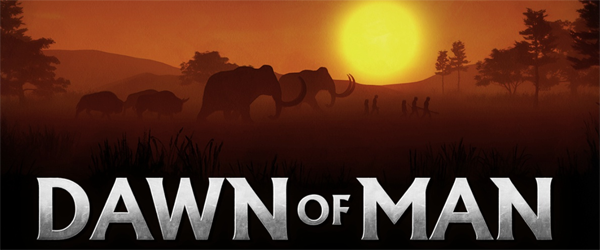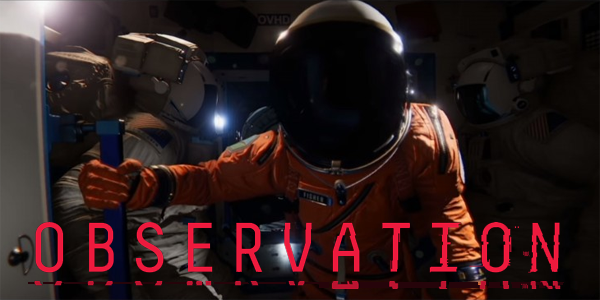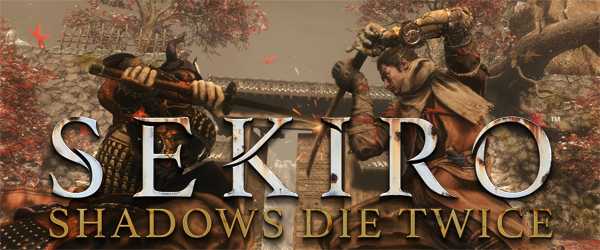
There was a surprise indie hit on Steam a few months back. The prehistoric city-builder / management sim Dawn of Man saw lots of buzz around its release date and sold well beyond the developers' expectations. Did you buy it? Is it on your radar, but you haven't purchased it yet? Have no idea what Dawn of Man is? Well, it's a pretty good indie game that is well worth a look for those into city-builders and management sims. If you liked Banished (and you should have liked Banished if you played it), then I would say you owe it to yourself to give Dawn of Man a look.
I released an early version of this guide (in video form) to my Patreon backers.
Dawn of Man can be a difficult game to figure out, especially as you work your way into the middle sections of the game where the options available to you suddenly explode into a myriad of possibilities. Some of these difficulties can be traced back to the game having a sometimes-lackluster U.I. that makes some of the management more difficult than it needs to be. Other difficulties are simply things that you have to experiment with to figure out.
Well, I've done a bit of experimenting, and am happy to offer some of my observations. I hope these tips will help you to get into Dawn of Man with less of the headaches and growing pains that I experienced, so that you can get to enjoying this surprise indie hit more quickly.
... [More]
5097ffe0-fe80-44c3-8f07-9d90fba843e3|3|5.0
Tags:Dawn of Man, Madruga Games, indie gaming, prehistoric, strategy, city management, Steam, PC, hunting, work area, mammoth, technology, paleolithic, mesolithic, neolithic, copper age, bronze age, iron age, raider, YouTube

From what I've read, Madruga's indie management sim Dawn of Man has proven to be far more successful than the developers had ever imagined. The game made it onto Steam's top-sellers list the month that it released and was a surprise hit. I've actually had the game on my radar for quite some time. I saw a preview for it back in mid 2018 in a YouTube video about "upcoming strategy games for 2019". I watch those from time to time to see if any new games are coming out in the niche genres that I enjoy -- like city-builders, strategy games, and horror games.
My two favorite PC games are the Civilization games and city-builders like Cities: Skylines, so a management sim / city-builder set during the stone, bronze, and iron ages seemed right up my alley.
A prehistoric city-builder is an idea that is right up my alley!
Like any good management sim or city-builder, Dawn of Man has a "one-more-season" addictiveness that kept me playing into the wee hours of the morning trying to balance my food stockpiles and finish that next set of construction projects before saving and quitting. I'd tell myself that I'd play it for an hour or two, then switch to Sekiro, or work on a Civilization strategy guide, but five hours later, I'd be building palisades and watchtowers to protect my little neolithic farming village from plundering raiders, or sending an expedition halfway across the map to hunt one of the last few remaining wholly mammoths.
Learning by doing
You start the game as a small group of 7 paleolithic humans (half of which are children) living in a handful of animal skin tents. You hunt animals, gather sticks and stones, pick berries and nuts, craft simple tools, and eventually expand your handful of tents into a bronze or iron age city -- complete with walls and an army.
Your progress through the eras is governed by the accumulation of knowledge points. These knowledge points are gained by completing certain tasks or milestones within the game. Your people effectively learn by doing, and through repetition. Each "first" within the game will earn a knowledge point. Build your first hut: gain a knowledge point. Hunt your first deer: gain a knowledge point. Craft your first composite spear: gain a knowledge point. Plant your first crops: gain a knowledge point. And so on.
You accumulate knowledge points by
completing in-game tasks or milestones.
After that, you gain further knowledge points by repeating certain tasks or stockpiling certain resources. Crafting 10 bows will be another knowledge point. Drying and curing 100 units of meat would be another knowledge point. And so on.
You're constantly and gradually earning new knowledge. You can turn in lump sums of these knowledge points for new technologies in a technology tree.
I like this mechanism of "learning by doing". There is no place-it-and-forget-it "research" building or school that passively accumulates knowledge points like what you might see in other strategy games like Civilization. Learning is an active process for your little simulated people, even though most of your knowledge points will come from activities that are automated anyway.
... [More]
8bb5fcaa-40f9-429e-bb8c-c0e44b7d6529|2|5.0
Tags:Dawn of Man, Madruga Games, village, city, strategy, city simulation, city planner, prehistory, paleolithic, mesolithic, neolithic, copper age, bronze age, iron age, mammoth, hunting, gathering, indie gaming

Hot off of releasing a video in which I criticized Colossal Order's design philosophy for its Cities: Skylines expansions, a new expansion was released. This expansion fulfilled my fears by being similarly narrow in scope compared to the previous expansions. Campus might even be more narrow than previous expansions. Every city will need parks and industries, so you'll have plenty of opportunity to use those expansion features in every city you build. Not every city will need a sprawling university complex, so a given city might not ever need to include any of the Campus content.
I had recently criticized the expansion design philosophy for Cities: Skylines.
Fortunately, there's more options here than a full-blown research university. Colossal Order has added several types of university areas that are more suitable to modestly-sized cities. Sure you may not need that full-blown research university, but maybe your smaller town could use a trade school or liberal arts school?
Even so, the scope here is very narrow! Colossal Order seems to have recognized this, as they are selling the expansion for a couple dollars less than previous expansions.
School is back in session, even for your industries!
Since Mass Transit, new expansions have struggled to find ways to make broader impacts on the game as a whole. They mostly stayed in their lanes. Campus follows suit by not adding anything that isn't related to education, however, those overhauls to education do have some further-reaching ripple effects.
Over-educated citizens used to refuse to take lower-level industrial jobs.
One of the problems that players have had to deal with since the initial launch of the game has been over-educated workers. Once you have schools in your city, it's only a matter of time before virtually everyone has a high level of education -- even children. This would leave all those educated citizens unwilling to take low-education, low-paying jobs in your factories and farms and would starve those industries of eligible workers. Demand for high-end commercial and office zones would skyrocket, and all your educated citizens would take those jobs. This would force those lower level industries to all but shut down once your city grows large enough.
Citizens' education level is now bounded by the level of schooling that they've attended. Prior to Campus, simply having a university in your city would provide everybody attending school (at any level) with a high level of education. Now, this has finally been fixed such that only those citizens who attend higher levels of schooling will receive the higher levels of education. This means that if a student goes to elementary school, but doesn't attend high school (either because they get a job first, or there isn't enough capacity in your high schools), then that citizen will be capped at a low level of education and will remain eligible for those low-level factory jobs.
... [More]
53aeb445-6e6e-4b24-ac8e-7fac34b2e368|0|.0
Tags:Cities: Skylines, Cities: Skylines: Campus, Colossal Order, Paradox Interactive, Steam, PC, city, university, education, college, student, varsity sports, library

It's real refreshing to come across a science fiction game that isn't just about shooting aliens with laser guns or blowing up space ships. If you're in the market for a thoughtful, well-presented science fiction experience, then I highly recommend that you check out Observation. If you're also into horror, then even better, because this game definitely has some horror elements as well. They're much more subdued, but this game does do a fantastic job of creating a building sense of tension and intrigue as its over-arching mystery is slowly unfurled.
The gimmick here is that you play as a malfunctioning artificial intelligence on a near-future orbital research station. The game is presented as a sort-of found-footage narrative (think along the lines of the Apollo 18 horror movie) told entirely from the point of view of the on-board A.I. Something goes wrong, the crew are all missing and possibly dead, and you help the sole survivor try to find the remaining crew and piece together what happened to the station. Think along the lines of playing as the HAL 9000 from 2001: A Space Odyssey, or as Kevin Spacey's character in the [fantastic] movie Moon. You do this by jumping between different surveillance cameras (a la Five Nights at Freddy's, but, you know, with ambitions of being more than just a random jump-scare-generator). Through the cameras, you interact with various technology and station systems within your line of sight. You'll occasionally be asked questions or given commands by the surviving astronaut, and you chose how to respond.
You are an unreliable A.I.?
From the start, there's a certain degree of unreliable narrator going on. One of the very first actions that the game asks you to do is verify the identify of the surviving astronaut via her voice print. You are initially told that her voice print does not match, and you're given the option to accept or reject her voice print. If you reject, she'll repeat her authorization code, and you'll be told that it matches this time. Is she not who she seems? Are your own systems providing you with misleading information? Are your systems merely damaged? This creates an immediate sense of distrust. You (the player) don't necessarily trust the survivor, the survivor doesn't necessarily trust you, and you can't even trust your own perception and judgement.
From the start, it's unclear whether you can trust Emma, or whether she can trust you...
This immediately creates a dense atmosphere of intrigue and mystery and sets a level of tension that persists through the entire game.
This atmosphere is helped by the richly-detailed near-future space station that you inhabit. The visuals are immaculately detailed, and the station looks and feels like it could be modeled after the real-life International Space Station. The spaces are tight and claustrophobic. Accessories and stationary are strapped or velcroed to the walls, floors, ceiling, and desk surfaces in order to prevent them from floating off in the zero-gravity environment. Everything is believable.
The game further builds its atmosphere with its immersive U.I.. Every button press, command, and interaction has some in-universe context behind it that helps to keep you in the mind-space of your A.I. character. The U.I. is mostly easy to use, and most actions feel intuitive.
This game hooked me in with its setting and atmosphere, and I just had to keep playing to find out what happened and where this would go!
The space station and U.I. are believable and immersive.
... [More]
409df8bf-36a0-4560-ac9f-e173dd9fc208|0|.0
Tags:Observation, No Code, Devolver Digital, PSN, Epic Games Store, science fiction, horror, mystery, point-and-click, walking simulator, puzzle, indie gaming, camera, found-footage, unreliable narrator, space, astronaut, artificial intelligence, HAL 9000, 2001: a Space Odyssey, Five Nights at Freddy's, Saturn

I never got into Tenchu because the
demos were too hard for younger me.
Oh, boy, was this a tough game to play and review! Frequent readers should probably know that I'm a huge Souls-Borne fan -- to the point of writing strategies and lore analyses. Sekiro is a bit different, however. It's much further divorced from Dark Souls than even Bloodborne was. Despite the lack of "Souls-Borne-ness" of Sekiro, I find it very difficult to put this review in any context other than of a new Souls-Borne release.
Sekiro is, ostensibly, a stealth game. There's more of Tenchu and Metal Gear in Sekiro than of Dark Souls. That's not necessarily a bad thing. I like stealth games just fine. The Metal Gear Solid games rank among one of my favorite game series ever.
I'm not terribly familiar with Tenchu, though. I think I played a demo of a PSX Tenchu game on one of my Official PlayStation Magazine demo discs (back in the day when publishers let players play pre-release demos, for free, instead of expecting us to pay for games long before they're even released, or holding the "open beta" hostage to a pre-order). I never bought the full Tenchu game because the demo was far too hard for my little 13 or 15-year-old gamer skills to handle. This was, of course, long before I started playing more demanding games.
Sekiro is in an awkward juxtaposition between Tenchu-inspired stealth, and Dark Souls-inspired boss fights.
However, there seems to be a certain degree of juxtaposition between Sekiro's desire to be a Tenchu-like stealth game, and its desire to feature demanding boss fights in-line with what is given in Souls-Borne games. In essence, we have two games here: a stealth game about staying out of sight of enemies and picking them off one-by-one; and a melee boss gauntlet in which the stealth isn't applicable at all. The first of those is good enough. The second one is where my problems begin...
My first playthrough of Demon's Souls was spent
cowering behind a shield.
All parry, all the time
You see, this really comes down to play-style. I was never a big parry-er in my Dark Souls-playing days. I parried a lot more in Bloodborne, but a big reason for that was that the guns allowed me to do so from a relatively safe distance. Heck, my first playthrough of Demon's Souls was done as the Royalty class, starting with the mana-regen ring, stabbing out with a winged spear from behind a shield, and using Soul Spear to dispatch any enemies I wasn't comfortable fighting up close. I hardly realized the parry mechanic existed!
Of course, I've grown and matured since 2008, and parrying has become a common element of my play-style. But I've still never been particularly good at it. This is causing me a lot of trouble in Sekiro because Sekiro's combat is all parrying, all the time! The new posture mechanic (which essentially replaces stamina) also means that a single parry isn't good enough to riposte and kill your enemy. You have to parry each strike in flurries of blows. For those coming from Dark Souls, imagine having to fight a hollow undead, and needing to parry every one of its wild slashes before you can riposte, instead of just the first one. That is what Sekiro expects and requires you to do.
Sekiro requires that you parry most attacks.
If you were a master-level parry-er in Dark Souls III, then you'll probably segue right into Sekiro with no problem and wonder what all the fuss is about. But for the rest of us plebs, that isn't going to be so easy.
This game plays much faster, enemies are much more aggressive, and health is in much smaller supply. Almost everything will kill you with two hits, and many grab attacks will drop you from full health to zero. This game leaves you with virtually no margin for error! Yet the mini-bosses and bosses have ridiculously high HP and posture.
... [More]
ecd29173-9c96-446a-944a-ddc20d5687ab|1|5.0
Tags:Sekiro, Sekiro: Shadows Die Twice, From Software, Activision, Hidetaka Miyazaki, Tenchu, Dark Souls, Demon's Souls, Bloodborne, stealth, boss, Japan, shinobi, samurai, mythology, lore, parry, deflect, deathblow, grinding
|

| 12 | | | | | | | 60 | | 11 | | | | | | | 55 | | 10 | | | | | | | 50 | | 09 | | | | | | | 45 | | 08 | | | | | | | 40 | | 07 | | | | | | | 35 | | 06 | | | | | | | 30 | | 05 | | | | | | | 25 | | 04 | | | | | | | 20 | | 03 | | | | | | | 15 | | 02 | | | | | | | 10 | | 01 | | | | | | | 05 |
|